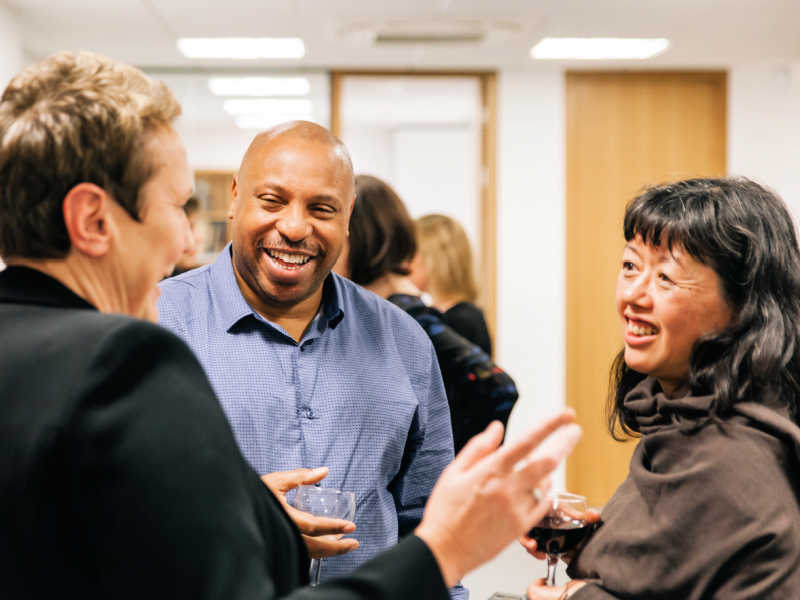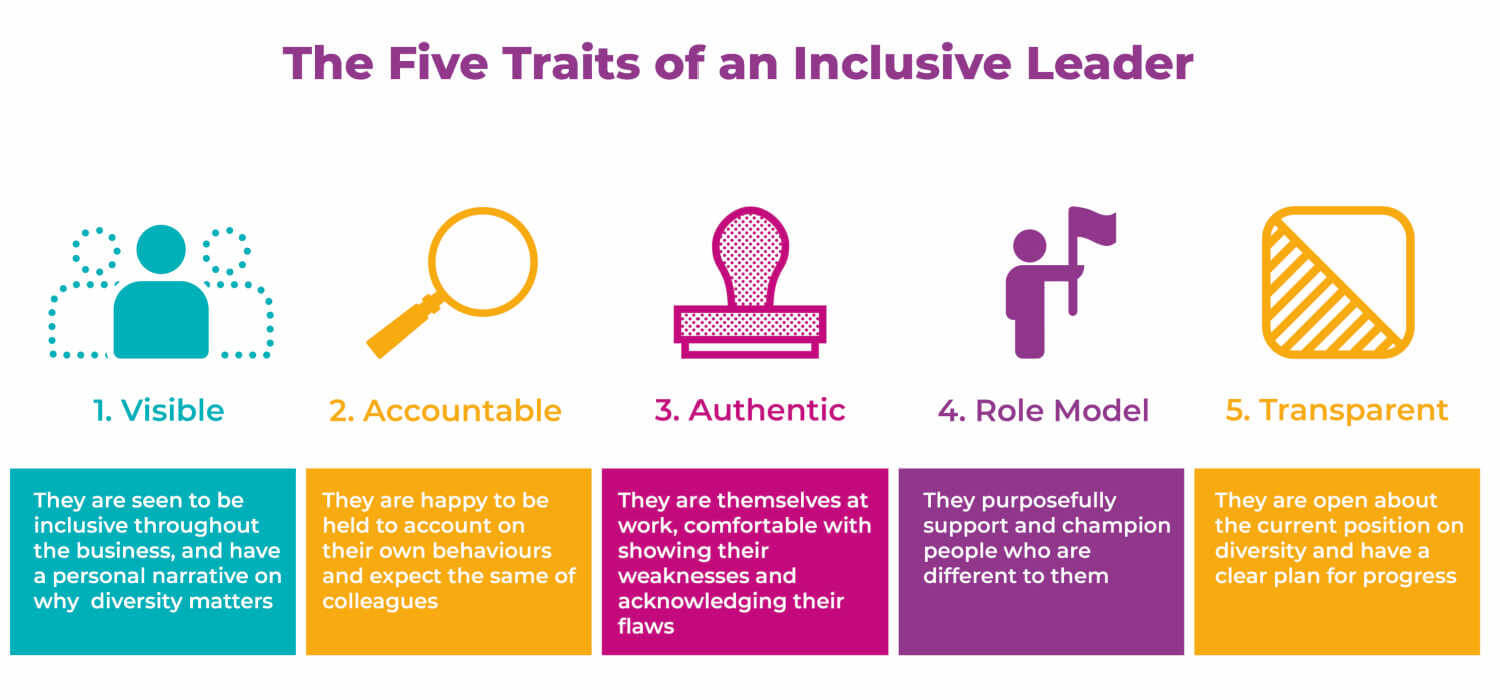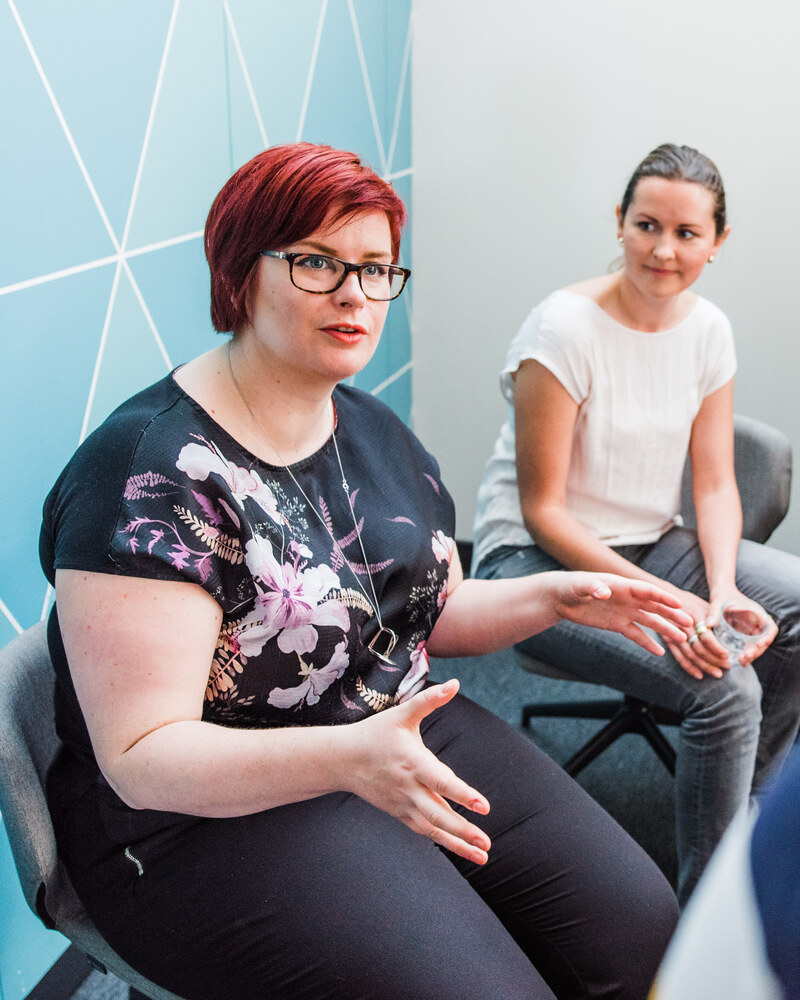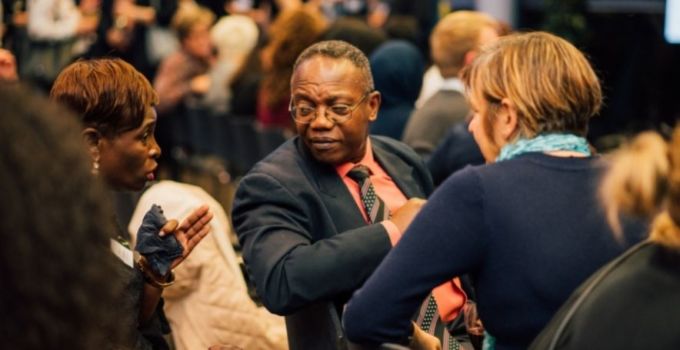Make diversity a priority with inclusive leadership
Our inclusive leadership training will create and embed a golden thread of inclusive leadership throughout your business.
By designing and delivering sessions that cut across all aspects of day-to-day management, we educate your leaders on the many benefits of inclusive leadership, and prompt them to re-evaluate how they manage, promote and lead others.
We regularly work with organisations with a global reach to build diverse cultures utilising inclusive leadership. Our programmes will lead to noticeable and recognised outcomes, and be supported by a robust framework that allows you to accurately measure your return on investment.
Better decisions
Inclusive teams make better business decisions up to 87% of the time.
Culturally intelligent leaders
Culturally intelligent leaders are 3.5 times more likely to get the full potential out of their staff
Our approach to inclusive leadership development
Our inclusive leadership programme will cement equality, diversity, and inclusion in your managers’ minds. It will become an inextricable part of their professional lives, and crucial to individual and organisational success. The sessions are thought-provoking, well-paced, and always aligned with your values.
EW Group’s inclusive leadership courses factor in all the protected characteristics while paying special attention to those which are business-critical to you. We base our programme around your strategic and talent management goals.

For example, if you’re looking to improve your recruitment and selection channels, we will design an inclusive leadership course to equip your managers with the skills they need to address unconscious bias where it may be impeding diverse talent. Your leaders will then be able to confidently articulate and communicate the links between inclusion, improve staff engagement, and deliver better end products and services.
We often use acted scenarios to engage your delegates and enable them to practice situations as they unfold in real-time, giving them another practical benefit.


Culture change for business success
For your inclusive leadership training to be effective, we make it bespoke to your business’ specific requirements and consider your company culture. Additionally, we may include key topics that commonly feature across our training programmes, for example:
- Diversity and difference: getting the best out of your teams
- What does an inclusive culture look like and how do we nurture one?
- The cultural code: how do people progress in your organisation?
- A great place to work: why diversity is critical to the business case
- Knowing your leadership style and keeping it authentic
- Pinpointing the triggers and habits that drive the best leadership behaviours
Design an inclusive leadership programme unique to your business challenges
Get in touchWhat our clients say
Inclusive Leadership FAQs
What does inclusive leadership mean?
Traditional leadership models are being turned on their heads. In these extremely volatile times, today’s leaders need to adapt their management styles and principles to what is needed across varying contexts. Command and control leadership may work in emergency situations, but in the day-to-day, it will be alienating.
Senior leaders must be able to attract, engage and retain diverse groups if they are to deliver excellence, whether it’s for departments or entire companies. Their teams need to reflect the diversity of those they serve if they are to be considered truly world-class. This is why it’s important for organisations to demonstrate their commitment to inclusion to users and the public, and leaders themselves should articulate their belief in the proven business benefits of inclusive leadership approaches.
What does inclusive leadership look like in practice?
Inclusive leaders are inspirational leaders. They are experts at adapting their leadership style to different groups and live situations. This allows them to communicate effectively across cultures, and to visibly champion difference and diversity as a powerful benefit. By successfully managing unconscious bias — in themselves and others — they can unlock the best talent and build inclusive, high-performing teams.
What are the benefits of developing inclusive leaders?
There is a powerful business case for developing inclusive leaders in all areas of your organisation. These include increased staff engagement, improved employee retention, and better decision-making.
It also promotes higher rates of disclosure for diversity data among workers, and ensures your staff are confident in reporting when standards are not being met. This helps to mitigate and prevent unwanted behaviours and reduces instances of bullying and harassment, grievance, and long-term sickness. Overall, inclusive leadership will create a culture that allows for innovation and assists you in securing a leading position in your industry.
Learn more about inclusive leadership
View and explore a range of topics related to inclusive leadership:




